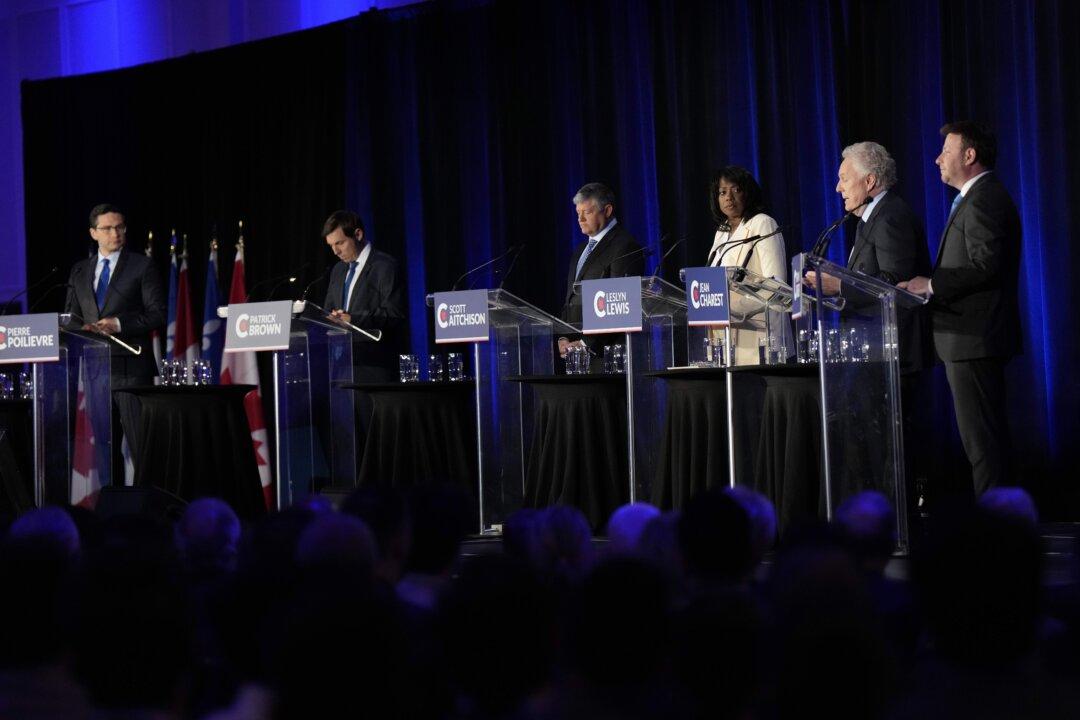Tory leadership candidates presented their approach to China policy during the French-language debate on May 25, providing their response to the moderator’s question, “What, as prime minister, would be your attitude to China?”
Moderator Marc-Olivier Fortin prefaced his question with the context that China has now taken control of Hong Kong, and is expected to attack Taiwan’s sovereignty, which will pose a threat to Canada since Taiwan produces “92 percent of the [computer] chips we use every day.”





